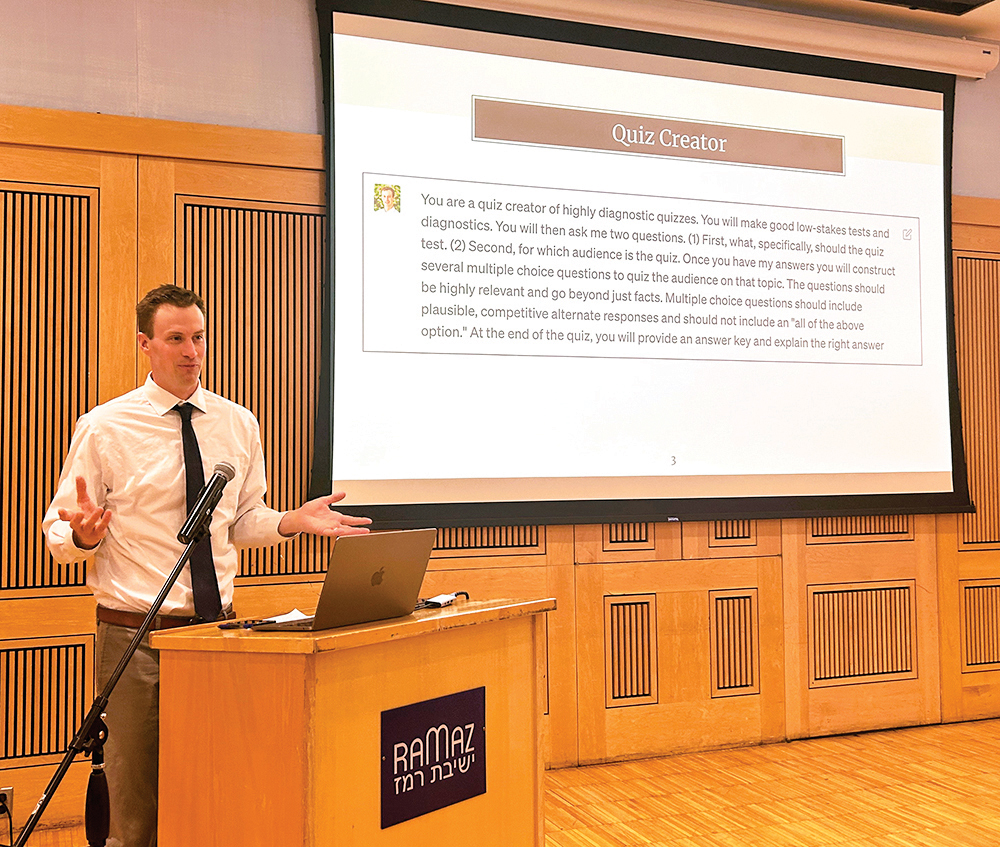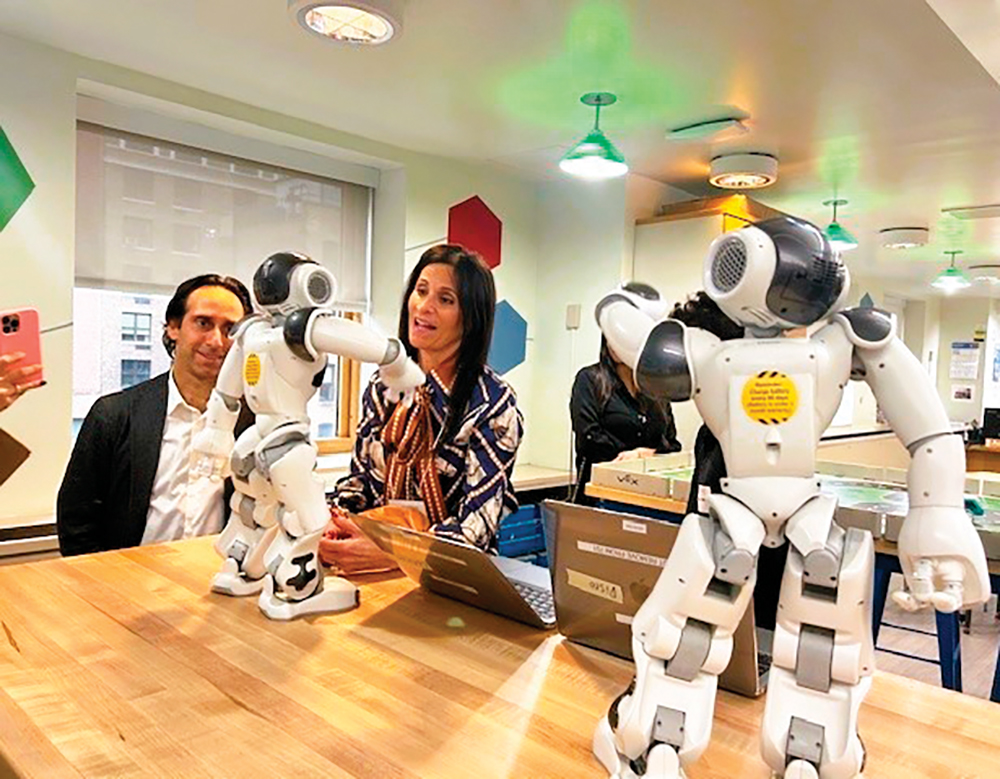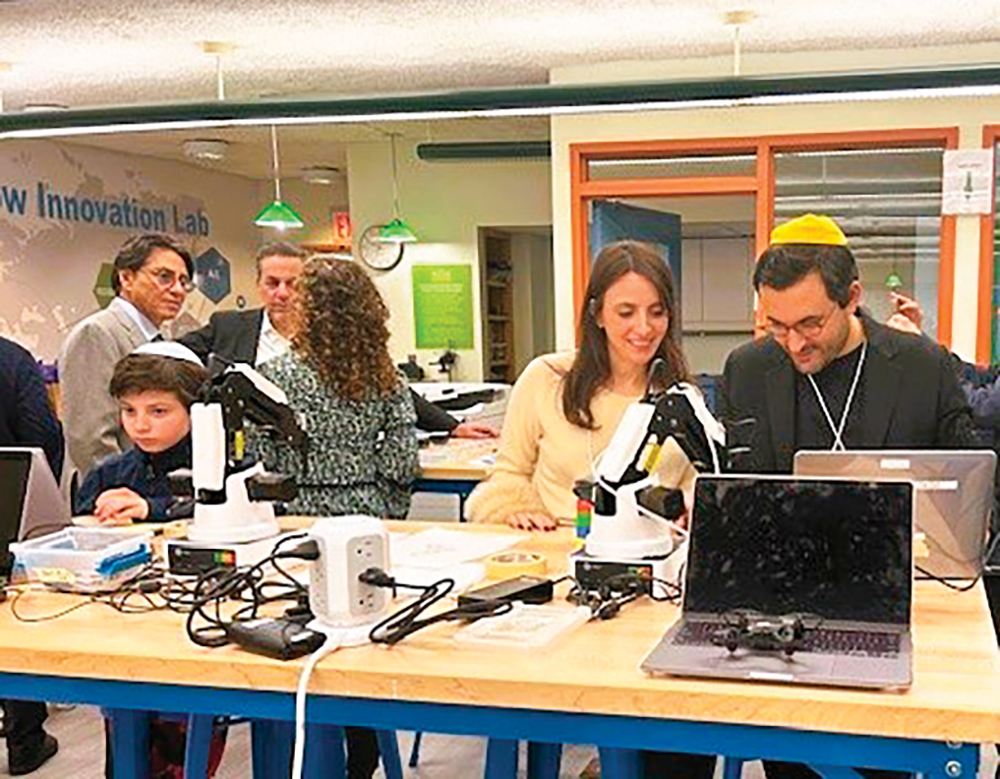
(Courtesy of the Ramaz School) “Do not humanize artificial intelligence,” advised Nate Green, a leading technology educator from the Sidwell Friends School in Washington which has educated the children and grandchildren of several U.S. presidents. “Think of it as a really good prediction engine that will enhance your teaching, help your workflow, and improve students’ skills” for the future workplace.
Before a recent standing room only audience of Ramaz educators during a schoolwide professional development seminar, Green shared his pragmatic view that when used thoughtfully, AI can be a powerful tutor for students and a great collaborator for teachers — not as replacements for either.
AI and machine learning helped give birth to things like ChatGPT, manufacturing robots, virtual travel booking agents, and self-driving cars. It enables computers and machines to analyze large sets of data to simulate human intelligence and the capacity to solve problems. Rather than shy away from it, however, Green is urging educators to first know how AI works and then explore productive and fun ways to integrate it into teaching and as a result, further deepen student learning.

“As a school, we are committed to nurturing intellectual rigor and a lifelong love of learning,” said Jonathan Cannon, Ramaz head of school. “This means living at the forefront of how we teach and learn.”
This also means understanding what AI does and doesn’t do, Green said. For example, AI can be used to create examples, analogies or even games that help students understand differences between the biological processes of mitosis and meiosis. It can also help students understand, compare and analyze two seemingly unrelated pieces of Talmud. “The Hebrew language portion of ChatGPT gets better every day,” quipped Green, responding to a question from a Ramaz Judaic studies educator.
But, it entirely depends on the clarity and quality of the information “put in” to these platforms. A dataset—one’s information, questions and ideas—directly impacts the output a machine learning algorithm uses to help find predictable patterns and solve problems.
Green offered several tips to keep in mind when using tools like ChatGPT:
AI tools generate new outputs every time they are used.
AI-generated text is essentially undetectable by plagiarism detectors.
AI “hallucinates,” meaning its algorithms are designed to give an answer even if it is missing information or “wrong.”
The field of AI is developing rapidly, and no one can “control” which new features are rolled out when uploading images, searching the web, uploading individual work, etc.

This impactful learning session came on the heels of the official opening of the new Ramaz Middle School Aronow Innovation Lab this past week. The lab, which became an integral part of student learning at the start of the school year, represents another important step toward helping students apply their Jewish values to a rich curriculum aligned with the United Nations’ sustainable development goals. This empowers students to push beyond traditional academic learning and work collaboratively to solve real-world problems.
The new Ramaz Aronow Innovation Lab sits at the intersection of Jewish values and innovation. Thanks to the generosity and vision of the Aronow family and several other Ramaz family donors, Ramaz Middle School students now have a place to bring together tikun olam and responsibility to the Jewish people and humankind to tackle some of the current problems of the time. It is in this space that students explore their Jewish values together with science, math, literature, Jewish text learning as well as other subject areas using the latest technology tools.
“Our sages gave us the foundation to understand our past and create a chidush—a new path, a new teshuva,” explained Ruth Gafni, Head of the Ramaz nursery-eighth grade school. “This empowers us to bring our own creativity into conversations with our ancient texts; to come to new ways of understanding, move forward and drive societal innovation.”












